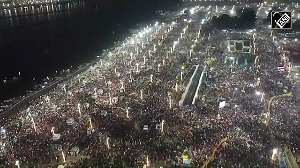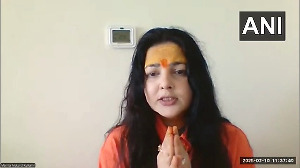Terming the second wave of COVID-19 as a “national crisis”, the Supreme Court on Friday warned authorities, from the Centre down to police chiefs, against silencing people and their pleas for help on the presumption that they are raising false grievances on the internet.

The top court made clear that any attempt to clampdown on free flow of information on social media including the call for help from people would be treated as the contempt of court.
“There should be free flow of information; we should hear voices of citizens. This is a national crisis. There should not be any presumption that the grievances raised on the internet are always false. Let a strong message be sent to all the DGPs that there should not be any kind of clampdown,” a bench headed by Justice D Y Chandrachud said, referring to posting of messages on social media about issues like shortage of oxygen, beds or doctors.
The bench, also comprising Justices L Nageswara Rao and S Ravindra Bhat, said, “If any action is taken against such posts by citizens in distress, we will treat it as contempt of the court.”
Solicitor General Tushar Mehta, appearing for the Centre, said that as an officer of the court he agreed with the views.
The apex court's observations assume significance following the recent decision of the Uttar Pradesh administration to prosecute people under the National Security Act for allegedly raising false alarms on social media.
The court also pulled up the Centre for not ensuring continuous supply of oxygen to Delhi and said “you cannot sit tight and do nothing. My conscience is shaken. We cannot have 500 deaths on our hands. You have to do something urgently and supply deficit 200MT oxygen to Delhi”.
Not all deaths in the hospitals here were due to oxygen shortage, Mehta stated, to which the bench said that the Centre has a Constitutional obligation towards Delhi, which is the face of the country.
The remarks were made by the court during the hearing of the suo motu case for ensuring essential supplies and services during the COVID-19 pandemic.
The bench also pulled up the Delhi government and said, “there should not be any political bickering. Delhi government has to cooperate with the Centre to deal with the situation. Politics is for election but here at this time of humanitarian crisis; each and every life needs to be saved. Please convey our message to highest level that they have to keep politics aside and talk to Centre”.
It told senior advocate Rahul Mehra, appearing for Delhi government, that they need to talk to the Centre to sort out the problems.
Mehra, who pointed to the figures regarding ambiguity in supply of oxygen to the national capital by the Centre, assured the top court that its suggestion will be followed in letter and spirit and they will cooperate with the Union government.
The bench has taken up issues such as projected demand of oxygen in the country at present and near future, how the government intends to allocate it to “critically-affected” states and the monitoring mechanism to ensure supply.
It observed during the virtual hearing that even frontline doctors and healthcare workers were not getting beds for treatment, the healthcare infrastructure inherited over past 70 years was not sufficient and the situation was grim in the country.
The apex court suggested that hostels, temples, churches and other places be opened for converting them as COVID-19 care centres and the Centre should adopt national immunization model as poor people will not be able to pay for vaccines.
"What happens to the marginalised people and SC/ST population living in far flung areas? Should they be left to the mercy of private vaccine manufacturers hospitals? They will not be able to pay for the vaccines”, it said, adding the that government must think of providing free of cost vaccination to all citizens.
It said private vaccine manufacturers cannot be allowed to decide which state should get how much quota, and the Centre should procure it from them and distribute it to the states.
Acknowledging the strain on the healthcare sector the bench said that it was on a “breakpoint” and suggested that retired medical workers can be re-employed for the purpose.
The top court allowed Additional secretary of Ministry of Health and Family Welfare Sumita Dawra to give the power point presentation on supply of oxygen across the country. She said that there was no shortage of medical oxygen in the country.
Mehta and senior advocate Ranjit Kumar, appearing for Bihar government pointed to the court that several high courts which are hearing matter related to COVID reliefs are making off the cuff remarks, which are denting the morale of officials working continuously.
The bench said that off the cuff remarks by High courts, which are not necessary to the case in hand, should be avoided and judges should maintain some judicial restraint.
"Even when we are criticising a judgement of a High Court, we do not say exactly what is in our heart and we exercise a degree of restraint. We would only expect that as freedom has been given to the High Courts to deal with these issues, certain of-the-cuff remarks, which are not necessary may be avoided," the top court said and posted the matter for May 10.











 © 2025
© 2025